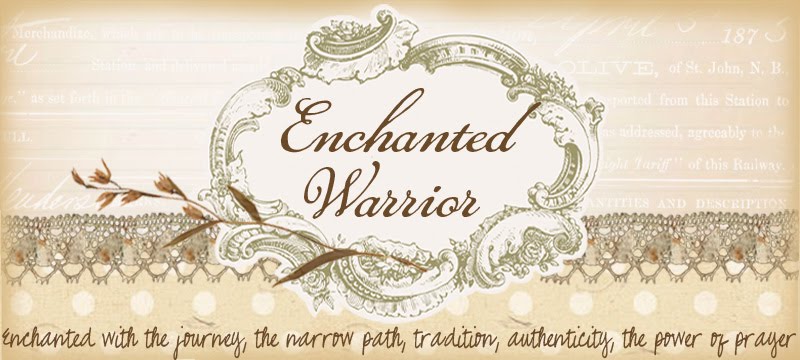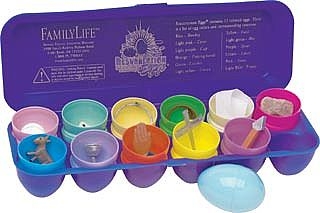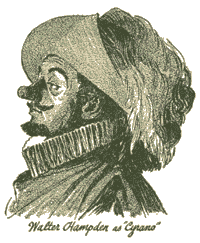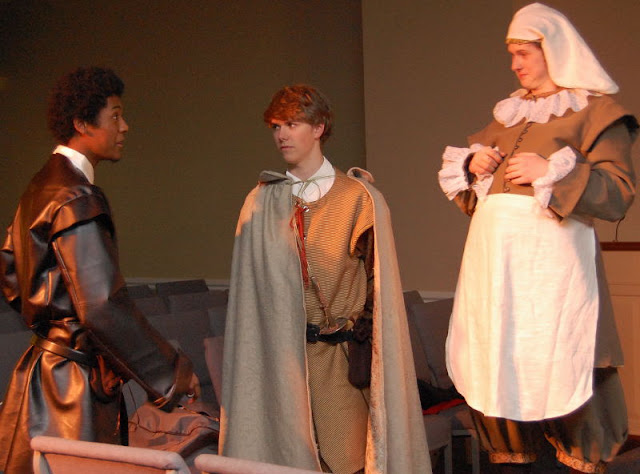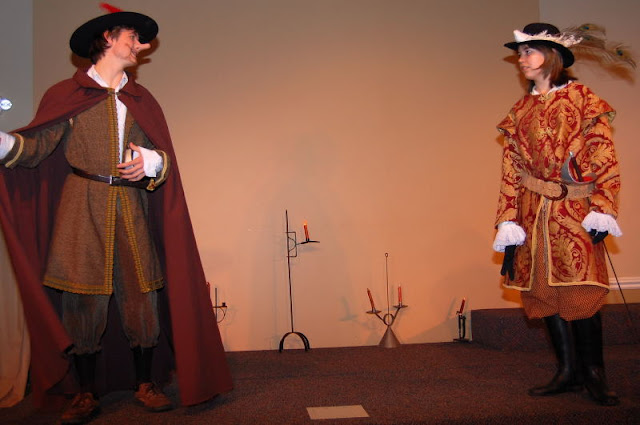In the calendar of the Western Church today is the Sunday which is known as Palm Sunday. It is the Sunday preceding Easter Day which commemorates the triumphal entry into Jerusalem. Churches are decorated with palms today in remembrance of the waving of the palm branches. There are processions in Roman Catholic countries. And all this in memorial of that hour when our Savior took to Himself His royal state, and rode amid acclamations to His capital. Now in our Presbyterian Scotland we lay little stress upon these feasts and festivals. Even Christmas, the kindliest of them all, has only a partial and tardy recognition. Yet is there such a thing as common thought and the heightening of common life through common thought, and that is the spiritual value of such days. This evening, then, we shall join that strange procession moving across the valley to Jerusalem. We shall hear the shout that goes echoing down the glen, "Hosanna to the Son of David." We shall watch our Savior fulfilling ancient prophecy, proclaiming His mission as the prince of peace, riding on the colt into the city.
Now according to the narrative of Matthew there were two animals in that procession. There was an ass-a noble, honored beast-and then beside it there was the ass's colt. Both belonged to some one Jesus knew, probably to some one He had saved. Both were secured not far away from Bethany at a little hamlet called the House of Figs. And both were taken by the two disciples, and brought to the village for the Master's use and seemingly both were used in the procession. The point to note is this-according to all the gospels it was not upon the ass that Jesus mounted. He looked at both of them for one brief instant and then deliberately chose the colt. And in a life like His where everything is vital and the slightest action of a vast importance, reverent thought cannot ignore that choice. Can we in any measure understand it?

Well, to begin with, I suggest He made this choice as a quiet assertion of His majesty. He chose, and He quite deliberately chose, the animal on which man had never sat. That ass had long been used in burden-bearing. It had often carried its master to the market. It had borne his wife and children many a time when they went over the valley to the city. And it may be that when some temple doctor had lingered at Bethphage until the shadows fell, village kindness had conveyed him home mounted on that sleek and comely animal. For wife and children it was good enough. For priest or Pharisee nothing could be better. Even for Jesus, in His lowly ministry, it would have been a welcome ease in traveling. But now He was not Jesus but The Christ. He was claiming for one brief hour His royal prerogative. He lifts Himself up into unique supremacy by choosing a beast whereon man had never sat. Long ago, down by the banks of Jordan, a very different scene had been enacted. With publicans and with soldiers and with sinners he had been baptized in the flowing Jordan. There He had stood where common men had stood. Here He sat where
never man had sat. That both were quietly deliberate actions I see not how anyone can doubt.
For that, after all, is the abiding mystery of our Lord and Savior Jesus Christ. He was a man of sorrows and knew our human frailty, and yet He stands apart confronting us forever. No desperate sinner but knew Christ understood Him; no wearied woman but felt He was her friend; no innocent child but saw in those dear eyes something that witnessed to the thought of love. And yet with all the infinite compassion and understanding which never has been equaled, His soul was as a star and dwelt apart. He stood where sinful mortal man had stood, and yet He sat where never man had sat. He is nearer and dearer than the most loved brother,and yet He is mysterious and alone. He stands beside us, and yet He stands confronting us. He takes our hand, and yet He bows us down. For if Shakespeare came in tonight we should all stand, as Lamb said; if He came in, we should all kneel. I do not think, then, that it was by accident that He chose the colt whereon man had never sat. Explain it how you will, that is the place which all the ages have given to Jesus Christ. And when you come to understand His power, to trust Him and in loyalty to follow Him, slowly and surely He will emerge for you into an incommunicable grandeur. Many a youth begins by putting Christ on the saddle where other men have sat. They put Him beside Socrates and Plato or give Him His place by Hegel and by Kant. And then the years go by, and troubles come, and no one can help and save but "Jesus only." He is on the colt whereon man had never sat.
In the second place, I would suggest to you that our lord meant this choice to typify His methods. It was quiet and a kindly parable of the kind of choices which He loves to make. As all of you are perfectly aware, in the Orient the ass was held in honor. It was a fine creature, says Professor David Smith, often as large as a small horse. Its bridle was studded with silver or with shells; its saddle was often elegant with tassels; it was associated in the people's thought with many a striking and historic scene. Now think of the striking contrast between that and the colt there by the ass's side: the one a trained and comfortable animal, the other a wild and shaggy little creature; the one accustomed to those crowded roads and going to take it easy whatsoever happened, the other rude and stubborn and intractable, filled with the fiery energy of youth. No hosannas would disturb the one; it was entirely safe and most entirely reputable.
But the other, never broken in as yet - no man could guarantee what it would do. And I think it was an acted parable,not without a certain courage in it, that our Lord rode that Sunday on the colt. Had He been thinking only of His comfort, our Lord would certainly have made the other choice. But I never read that in any choice He made our Lord thought of His safety or His comfort. It is not the first time,and it is not the last, that He has surprised the world by the servants He has chosen - the shaggy, fiery, and unbroken instruments for the advancement of His glory.
One would think, for instance, of the first disciples, and of what manner of instruments they were. One has only to read the record of the gospels to apprehend that they were
coltish men. In Palestine in the period of our Savior, there was considerable culture of that kind.
There were men who were thoroughly trained and broken in by years of patient study of antiquity. There was a whole class known by the name of Pharisees, who walked in an odor of unquestioned sanctity and who stood in the eyes of all the common for everything that was respectable and safe. The strange thing is that when Jesus made His choice, it was not any of such persons that He chose.
He had no interest in conventionality; His only interest was in possibility. He did not want men who were broken in; He wanted men who were ready to break out, on a dead world that must be won for heaven and plucked even as a brand out of the burning.
That was why He chose these fiery natures, those untempered and unbroken men. Their ways were rude; their language was uncouth; their temper was uncertain and unproved. They were no sleek and comely beasts of burden, fitted to win applause in any pageant. They were rough colts, shaggy and undisciplined, yet chosen for the triumph of the Lord. It was a very daring choice to make. There were times when it actually seemed to be a failure. There were times when their stumbling and foolish obstinacy had almost broken the heart of the Redeemer. And I think that when He chose the colt that morning, instead of the sleek and comfortable creature, Peter and James and John would understand. They would feel that Christ had no misgivings. It would convey to them that He had no regrets. It would tell them that had He to chose again, His choice would not be made on different lines. And perhaps also it suggested to them that as they had shard His sufferings and sorrows, so would they share in the triumph that was coming when all the hosts of heaven would shout, "Hosanna!"
And if it was thus with the first company, so has it been with every age since then. Not many wise,not many mighty, have been chosen to carry the Savior to His triumph. I am not one of those who think that Christ has any quarrel with learning or with literature. I believe that everything good and bright and beautiful is meant to be a handmaid in His kingdom. But I am one of those who, looking back on history and noting the hours when Christ has come in triumph, cannot but recognize in countless instances that He has ridden on the rude and shaggy colt. I think of the dignity of medieval Christendom, rent by the rude hand of Martin Luther. I think of an orthodox pulpit left unhonored, that the honor of service might be given to Bunyan. I think of an easy an comfortable England roused to a sense of God and of eternity, not by the fellow of any ancient college, buy by an untrained creature like George Whitefield.
How often Christ has used the rugged word and left the most polished sermon ineffectual! How often has He owned the boisterous hymn and put to shame with it the praise of organs! How often has He come in power and triumph over the valley of our human need on the rough creature which was never trained and which no self-rejecting rabbi would have used. All that, to me, in kindly acted parable is typified in this action of Palm Sunday. It is Christ saying to us, "When you see this colt, you shall remember the Lord's ways until He come." And that is always need by the Church when she waits for the ringing of the bridle-bells and thinks that Christ will never come to her, save on the sumptuous and splendid saddle.
From the Wind on the Hearth, by George H. Morrison
